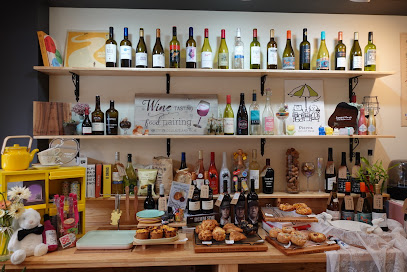
Discover the Majestic Royal Tomb of King Michu
Explore the Royal Tomb of King Michu, a serene historical landmark in Gyeongju, reflecting the rich heritage of Korea's Silla Dynasty.
The Royal Tomb of King Michu in Gyeongju is a must-visit historical landmark, offering tourists a captivating glimpse into ancient Korean royalty. With its serene surroundings and rich history, it provides a unique experience for those exploring the heritage of the Silla Dynasty.
A brief summary to Royal Tomb of King Michu
- 89-2 Hwangnam-dong, Gyeongju-si, Gyeongsangbuk-do, KR
- +8254-779-8743
- Monday 9 am-10 pm
- Tuesday 9 am-10 pm
- Wednesday 9 am-10 pm
- Thursday 9 am-10 pm
- Friday 9 am-10 pm
- Saturday 9 am-10 pm
- Sunday 9 am-10 pm
Local tips
- Visit early in the morning or late in the afternoon to avoid crowds and enjoy a quieter atmosphere.
- Wear comfortable shoes for walking, as the site features scenic paths and gardens.
- Take a guided tour to gain deeper insights into the history and significance of the tomb.
- Don't forget your camera; the picturesque surroundings make for great photographs.
- Check for any special events or exhibitions that may be taking place during your visit.
Getting There
-
Car
If you are driving, start from the Gyeongju Historic Areas. Use a navigation app to enter the address: 89-2 Hwangnam-dong, Gyeongju-si, Gyeongsangbuk-do. The Royal Tomb of King Michu is about a 10-minute drive from the center of Gyeongju. Look for signs directing you to the tomb as you approach. There is limited parking available near the site, so arrive early if possible.
-
Public Transportation
To reach the Royal Tomb of King Michu via public transportation, take Bus No. 10 or 11 from Gyeongju Intercity Bus Terminal. You can catch these buses regularly from the terminal. After approximately 15 minutes, get off at the Hwangnam-dong bus stop. From there, it’s a short 10-minute walk to the tomb. Head east on Hwangnam-ro, and you will see signs directing you to the Royal Tomb.
-
Walking
If you are already near the Gyeongju Historic Areas, you can walk to the Royal Tomb of King Michu. From the Gyeongju National Museum, take the road heading southeast on the Hwangnam-ro road. It should take about 20 minutes on foot. Keep an eye out for local signage that points towards the tomb. The stroll is pleasant, providing an opportunity to enjoy the surrounding historic landscape.
Discover more about Royal Tomb of King Michu
Iconic landmarks you can’t miss
대릉원입구
0.2 km
Discover Gyeongju, South Korea's ancient capital, rich in history, culture, and breathtaking landscapes, perfect for an unforgettable travel experience.
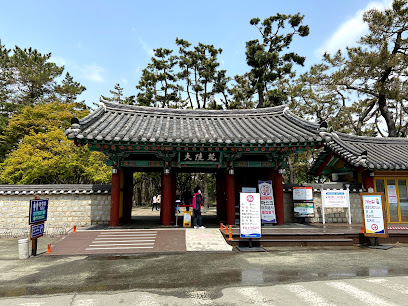
Hwangnamdaechong Tomb
0.3 km
Explore the majestic Hwangnamdaechong Tomb, a remarkable historical landmark that reveals the rich heritage of the Silla Dynasty in Gyeongju, South Korea.
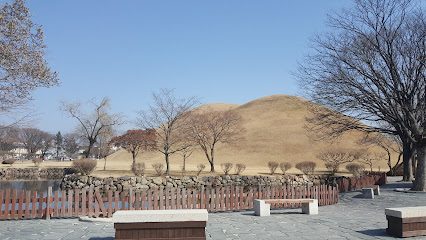
Jjosam Ruins Excavation Hall
0.4 km
Discover the ancient wonders at Jjosam Ruins Excavation Hall, an open-air museum showcasing Korea's rich Silla Dynasty heritage.
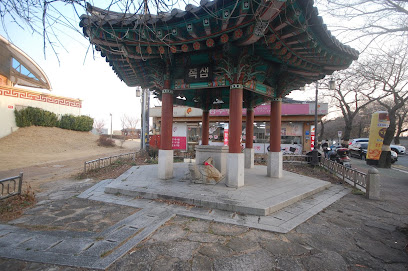
Ancient Tombs in Inwang-dong, Gyeongju
0.5 km
Unveil the secrets of the past at the Ancient Tombs of Inwang-dong, Gyeongju, where history and nature intertwine in a tranquil setting.
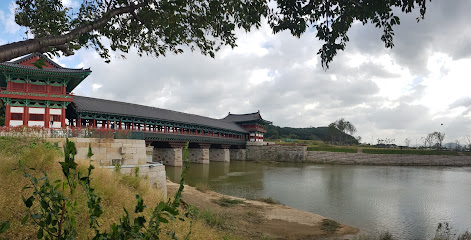
경주황남동고분군
0.6 km
Discover the ancient tombs of Gyeongju, a UNESCO World Heritage site, and immerse yourself in Korea's rich history and culture.
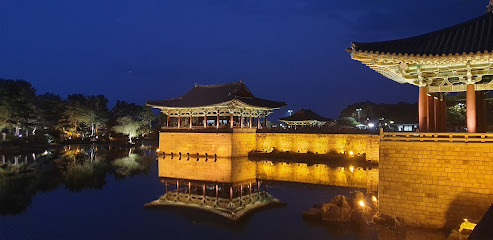
경주황남동고분군
0.6 km
Discover Gyeongju's rich heritage at this enchanting preservation site, where history and nature harmoniously intertwine.
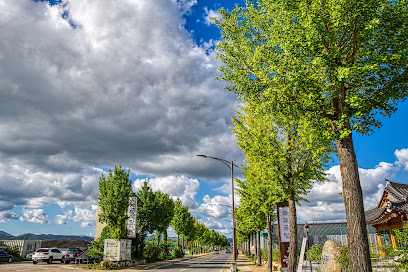
Tombs of Noseo-ri, Gyeongju
0.6 km
Explore the Tombs of Noseo-ri, a UNESCO World Heritage site in Gyeongju, showcasing the ancient burial practices of the Silla Dynasty amidst stunning landscapes.
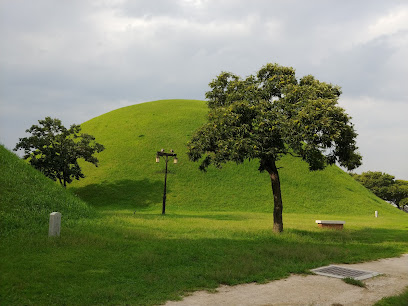
경주 사마소
0.8 km
Discover the ancient wonders of Gyeongju, a historic gem of South Korea filled with royal tombs, temples, and cultural treasures.
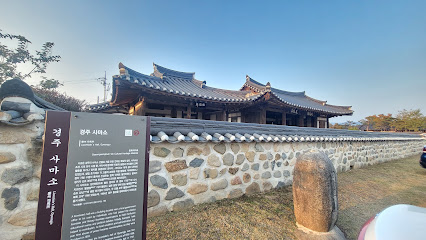
경주 남고루
1.2 km
Explore Gyeongju's Seongdong Lake Park: a historical gem surrounded by nature, perfect for a tranquil getaway and cultural immersion.
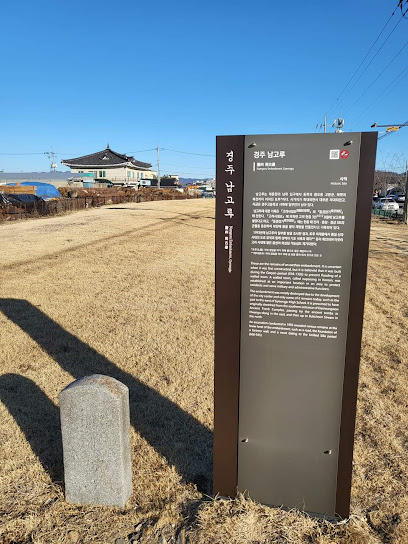
경주 남고루
1.2 km
Discover Gyeongju, the heart of Korea's ancient history, where every stone tells a story and every site is a window into the past.
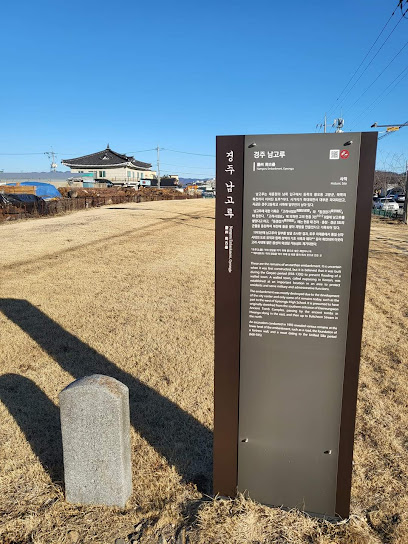
Bell of King Seongdeok (Emile Jong)
1.4 km
Discover the historical significance and artistic beauty of the Bell of King Seongdeok, a cornerstone of Korea's cultural heritage in Gyeongju.
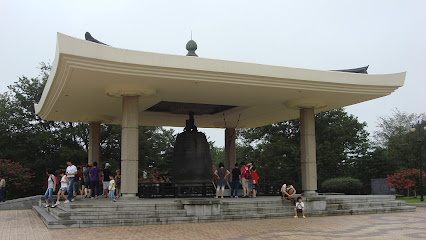
Oreung Royal Tombs
1.6 km
Discover the Oreung Royal Tombs in Gyeongju, a UNESCO World Heritage site steeped in ancient Korean history and serene natural beauty.
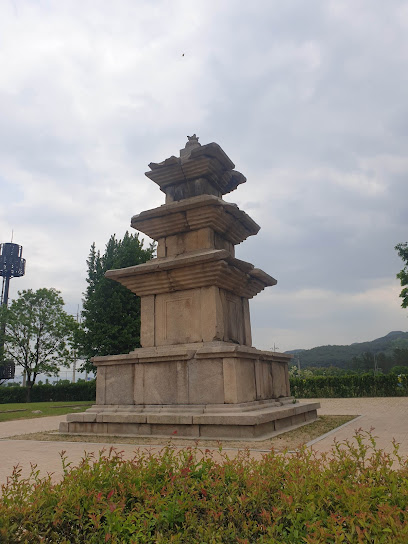
Sangseojang Residence
1.6 km
Explore Sangseojang Residence, a historical jewel in Gyeongju-si, showcasing traditional Korean architecture and tranquil gardens.
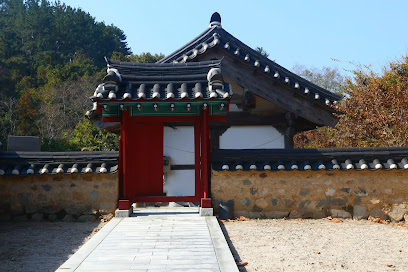
Bunhwangsa
1.9 km
Discover the tranquility and historical significance of Bunhwangsa, a stunning Buddhist temple in Gyeongju, rich in cultural heritage.
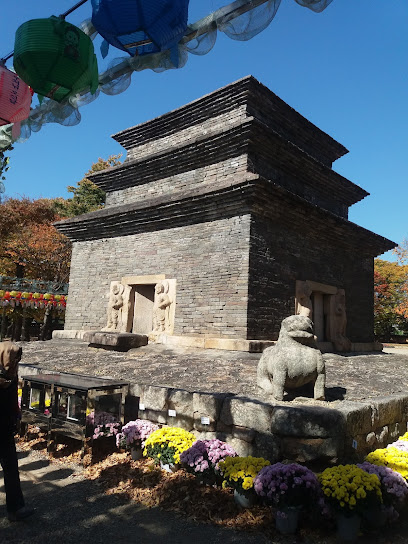
Talhaewangneung Royal Tomb of King Seok Talhae
2.4 km
Visit the Talhaewangneung Royal Tomb of King Seok Talhae in Gyeongju, a stunning tribute to Korea's royal heritage set in a serene landscape.
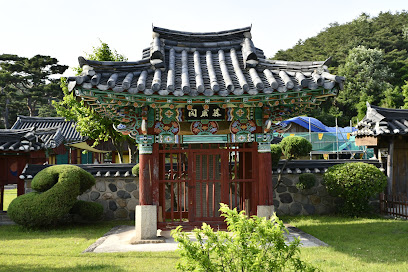
Unmissable attractions to see
Daereungwon Photo Zone
0.3 km
Explore the enchanting Daereungwon Photo Zone in Gyeongju, where ancient royal tombs meet stunning landscapes for a perfect day of cultural immersion.
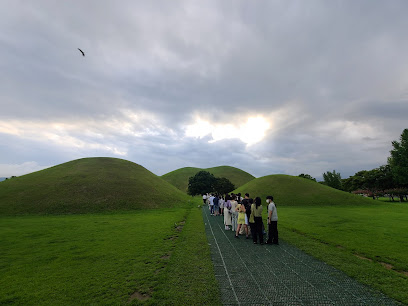
Daereungwon Tomb Complex
0.3 km
Discover Korea's royal heritage at the Daereungwon Tomb Complex, a serene and historic site in Gyeongju, embodying the essence of the ancient Silla Kingdom.
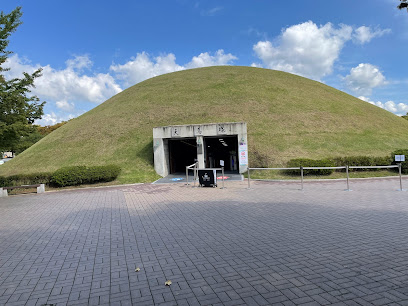
Hwangnidan-gil
0.4 km
Discover the vibrant blend of history and modernity at Hwangnidan-gil, Gyeongju's charming street filled with cafes, boutiques, and cultural experiences.
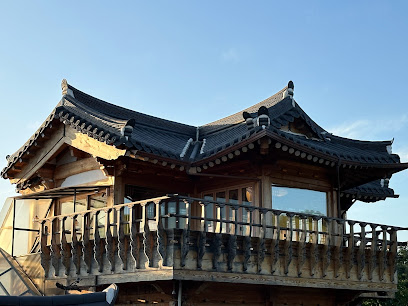
Cheonmachong
0.4 km
Explore the ancient wonders of Cheonmachong, Gyeongju’s heavenly tomb that reveals the rich history of the Silla Dynasty.
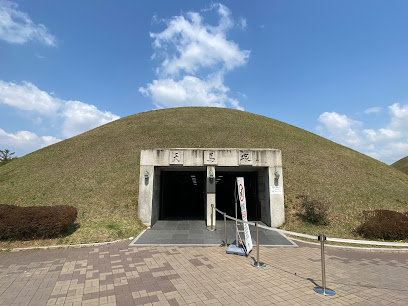
Gyeongju Eastern Historic Site
0.4 km
Discover the timeless beauty and historical significance of Gyeongju Eastern Historic Site, a UNESCO World Heritage gem in Korea.
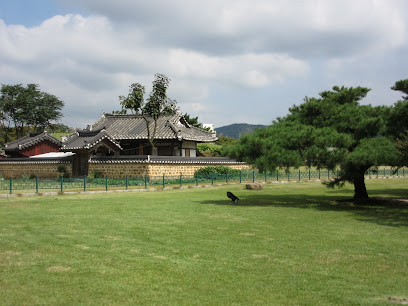
Cheomseongdae Pink Muhly
0.5 km
Discover the enchanting Cheomseongdae Pink Muhly in Gyeongju, where vibrant landscapes meet rich cultural heritage in a breathtaking ecological park.
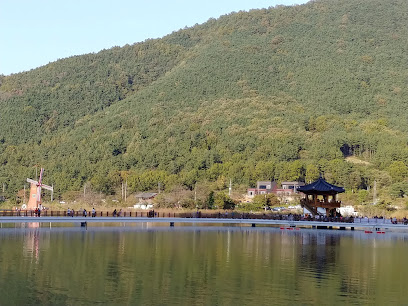
Cheomseongdae Observatory
0.5 km
Discover the ancient astronomical marvel of Cheomseongdae Observatory in Gyeongju, a historic site that reveals Korea's rich celestial heritage.
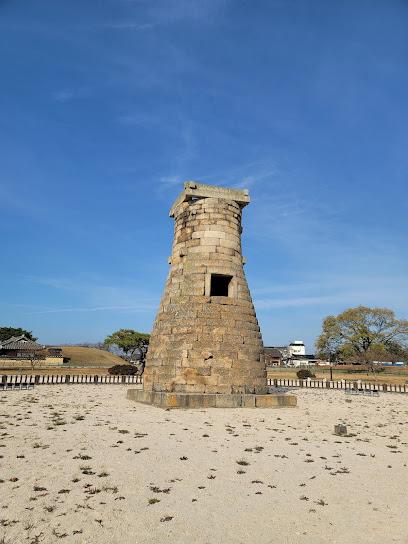
Gyerim Forest
0.6 km
Discover the serenity and rich historical significance of Gyerim Forest in Gyeongju, a must-visit destination for cultural enthusiasts and nature lovers alike.
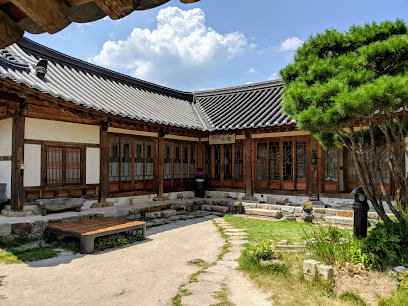
Geumgwanchong
0.6 km
Discover the historical charm of Geumgwanchong, a stunning landmark in Gyeongju, South Korea, rich in culture and history.
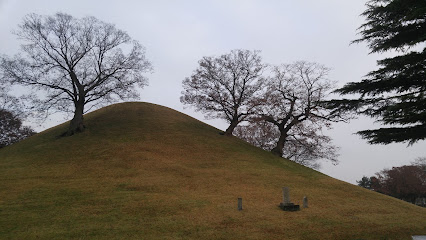
Historic House of the Rich Man Choi, Gyeongju
0.7 km
Explore the historic charm of the House of the Rich Man Choi in Gyeongju, a cultural gem showcasing Korea's traditional architecture and rich history.
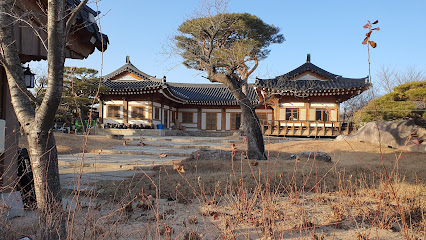
Gyeongju Gyochon Traditional Village
0.8 km
Explore the rich cultural heritage of Korea at Gyeongju Gyochon Traditional Village, a living museum of traditional architecture and vibrant local traditions.
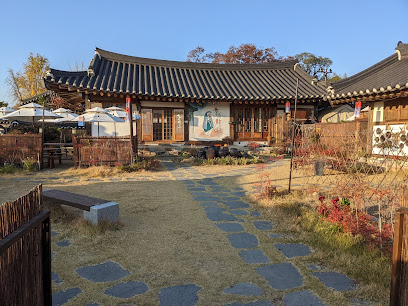
Gyeongju Historic Site Wolseong District
0.8 km
Explore the historic Wolseong District in Gyeongju, where ancient Silla architecture and serene landscapes create a captivating travel experience.
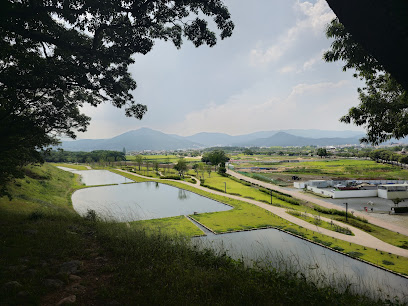
Woljeonggyo Stepping Stones
0.8 km
Discover the enchanting Woljeonggyo Stepping Stones in Gyeongju, where nature meets culture in a picturesque setting.
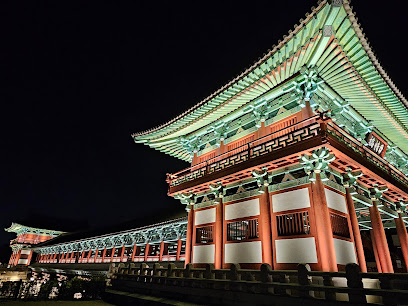
Banwolseong Fortress
0.9 km
Discover the historical beauty of Banwolseong Fortress, a serene and captivating landmark located in Gyeongju, South Korea.
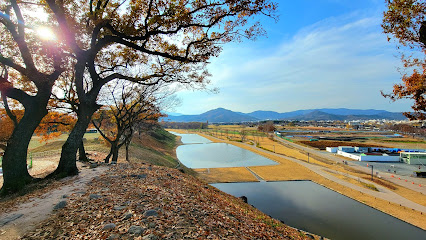
Woljeonggyo Bridge
0.9 km
Explore the enchanting Woljeonggyo Bridge in Gyeongju, where history meets natural beauty in a serene setting.
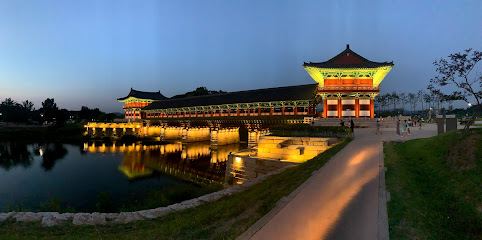
Essential places to dine
A-ung
0.1 km
Experience authentic Asian cuisine at A-ung in Gyeongju, where tradition meets flavor in a cozy setting perfect for any occasion.
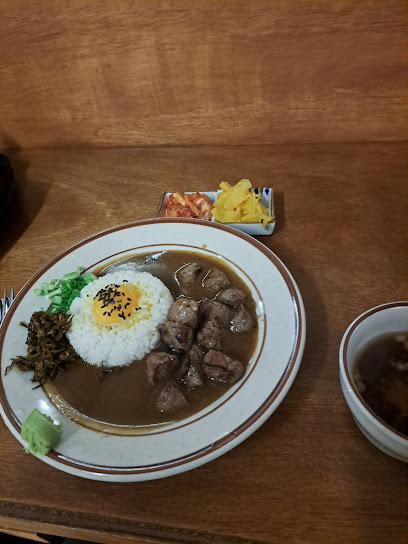
Hwangnam Gyeongju Sikdang
0.2 km
Discover authentic Korean flavors at Hwangnam Gyeongju Sikdang – a culinary gem in the heart of Gyeongju.
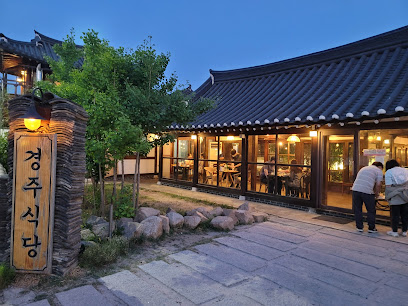
Seasoning
0.2 km
Discover Seasoning in Gyeongju: A cozy Western restaurant offering delicious dishes and exceptional service amidst rich cultural heritage.
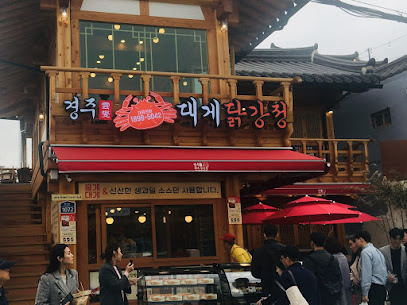
Ryoko
0.2 km
Indulge in authentic Japanese flavors at Ryoko in Gyeongju - where culinary tradition meets exceptional dining.
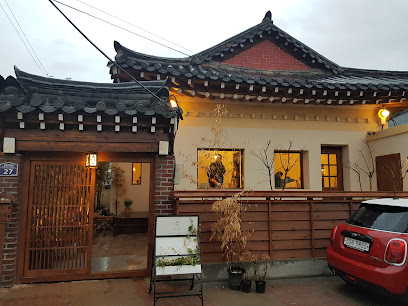
Ttobom
0.2 km
Discover Ttobom Bistro in Gyeongju: A fusion of Western flavors in a cozy setting perfect for tourists seeking memorable dining experiences.
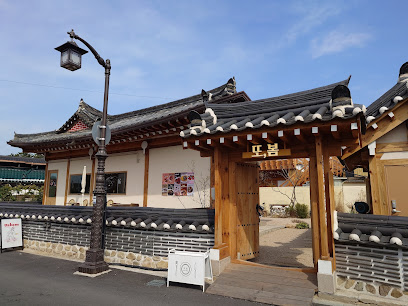
Sobakage
0.2 km
Indulge in authentic Japanese cuisine at Sobakage, where tradition meets flavor in the heart of Gyeongju-si.
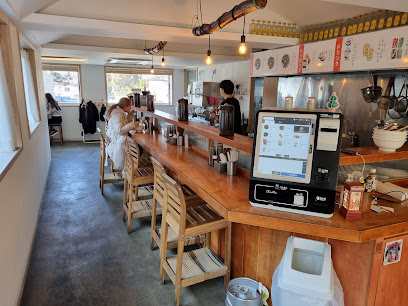
Moru
0.2 km
Experience authentic Korean cuisine at Moru in Gyeongju—where tradition meets flavor in a warm and inviting atmosphere.
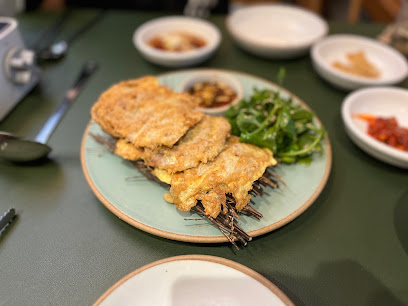
Dosol Maeul
0.2 km
Experience authentic Korean cuisine at Dosol Maeul in Gyeongju – where tradition meets flavor in every dish.
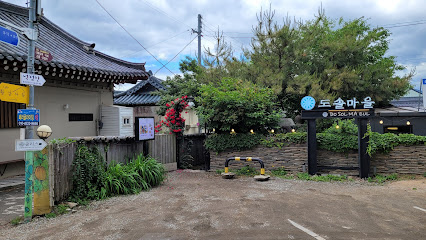
Sigol Ssambap
0.2 km
Experience authentic Korean cuisine with unique banchans at Sigol Ssambap in Gyeongju-si—where tradition meets flavor.
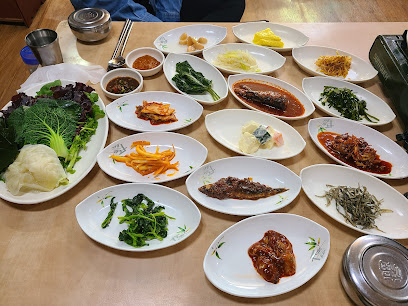
Pizaok
0.2 km
Savor authentic Italian cuisine at Pizaok in Gyeongju - where every dish tells a story and every visit feels like home.
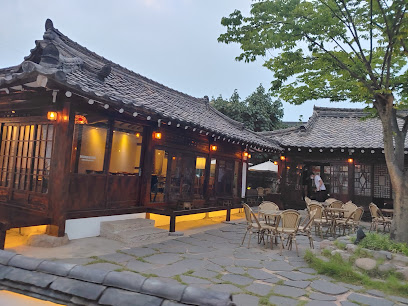
Soog
0.3 km
Experience authentic Korean flavors at Soog in Gyeongju—where tradition meets taste in every dish.
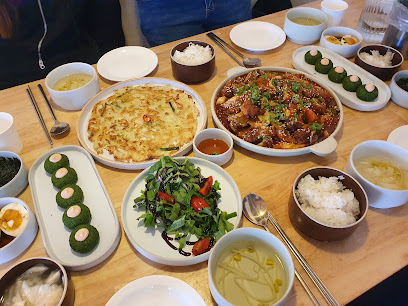
오소 육전&메밀
0.3 km
Discover traditional Korean cuisine at 오소 육전&메밀, where delicious buckwheat noodles meet exquisite meat dishes in Gyeongju.
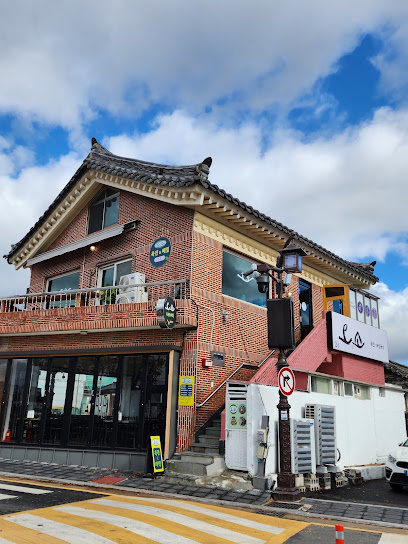
Anima
0.3 km
Experience authentic Italian flavors at Anima in Gyeongju—where tradition meets local charm in every delicious bite.
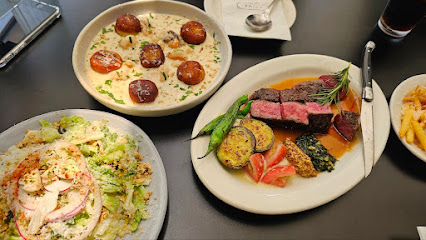
Bichkkuli
0.3 km
Experience the charm of Bichkkuli Cafe in Gyeongju - where traditional Korean culture meets delightful culinary offerings.
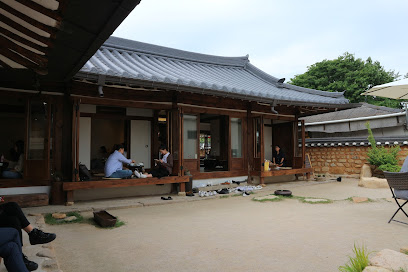
Anima Italian Trattoria
0.3 km
Experience authentic Italian cuisine at Anima Italian Trattoria in Gyeongju - where every meal is a celebration of flavor and tradition.
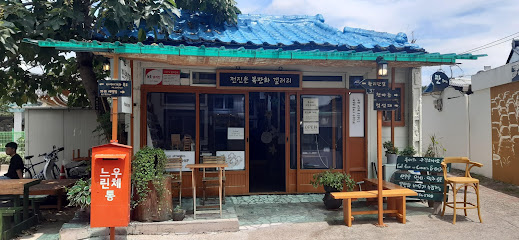
Markets, malls and hidden boutiques
소소0561
0.2 km
Explore the charm of Gyeongju at 소소0561, where unique gifts and local crafts await every traveler seeking a piece of Korea.
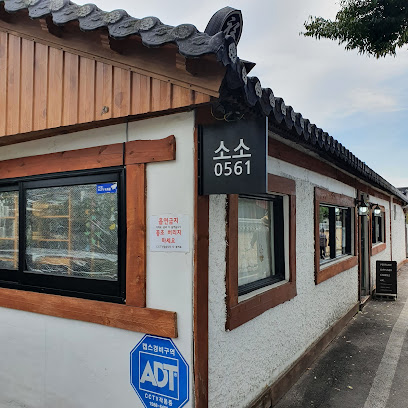
Hwamogto
0.2 km
Explore the charm of Gyeongju at Hwamogto, a delightful general store offering local crafts, traditional snacks, and unforgettable souvenirs.

마실
0.2 km
Discover the vibrant fashion scene at 마실, Gyeongju's unique clothing store, offering eclectic styles and local designs that celebrate Korean culture.
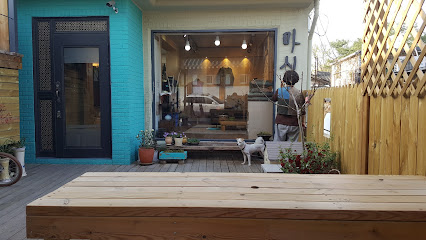
Dress Enjoy 입고놀자
0.3 km
Discover fashion in Gyeongju at Dress Enjoy, where modern trends meet traditional Korean aesthetics for an unforgettable shopping experience.
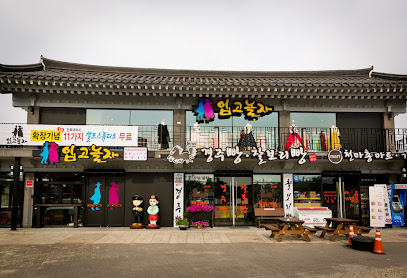
대릉원선물가게
0.3 km
Explore the vibrant charm of Gyeongju at 대릉원선물가게, your go-to destination for unique Korean souvenirs and novelty items.
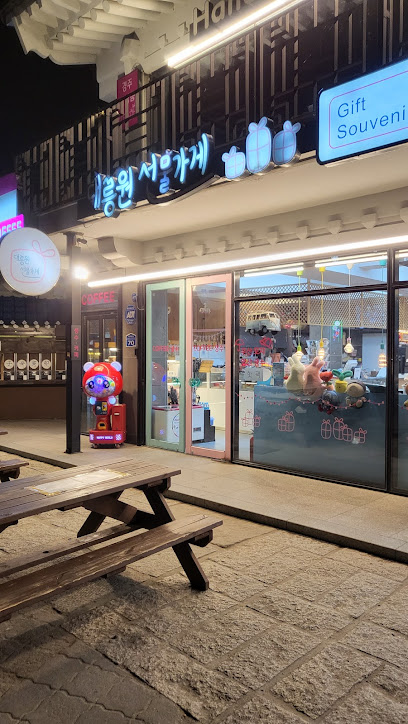
한복한하루
0.3 km
Explore the beauty of traditional Korean attire at 한복한하루, a unique clothing store in Gyeongju, where history and fashion merge.
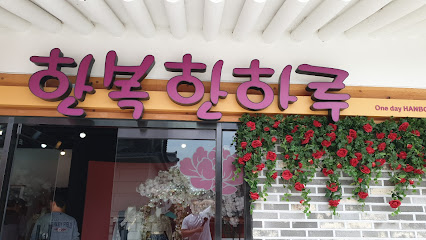
청년감성상점
0.3 km
Explore 청년감성상점 in Gyeongju for unique souvenirs that capture the culture and beauty of Korea, perfect for every traveler.
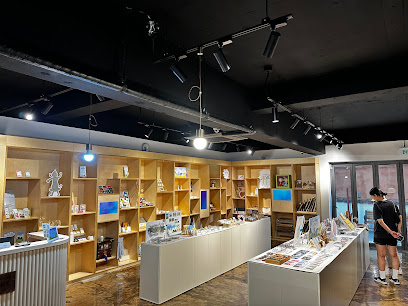
신라민예사
0.3 km
Explore the cultural wonders of Gyeongju at 신라민예사, a treasure trove of unique Korean crafts and souvenirs.

로빈스 콜랙션스
0.3 km
Explore the charm of Gyeongju at 로빈스 콜랙션스, a gift shop offering unique local crafts and souvenirs that capture the essence of your travels.
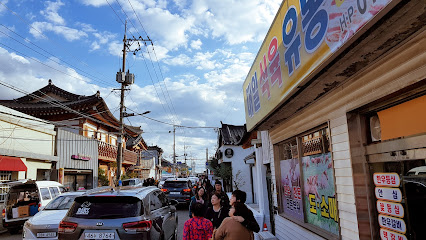
로빈스 콜랙션스
0.3 km
Discover unique souvenirs at 로빈스 콜랙션스, a delightful gift shop in Gyeongju, showcasing local artistry and handcrafted treasures.
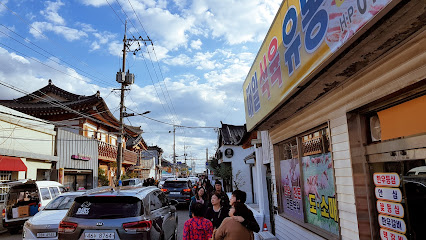
히피몬드 Hippy Mond
0.4 km
Discover unique gifts and local crafts at Hippy Mond, a charming gift shop in Gyeongju, perfect for capturing the spirit of Korea.

Ssopum
0.4 km
Explore Ssopum in Gyeongju for unique gifts and local crafts, embodying the rich culture and artistry of Korea.
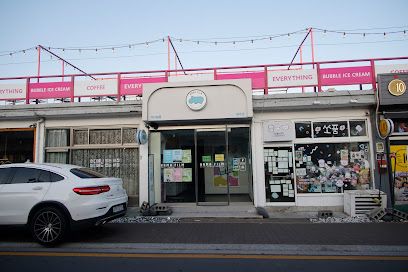
Baerisamneung Gongwon 배리삼능 농원
0.4 km
Discover the charm of Gyeongju at Baerisamneung Gongwon, your go-to gift shop for unique souvenirs and local crafts.

망고홈 Mango Home
0.4 km
Explore Mango Home in Gyeongju for unique gifts and local handicrafts that capture the spirit of Korean culture.
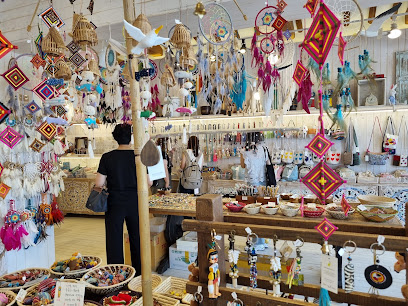
시카고 포스트
0.4 km
Explore 시카고 포스트: A charming gift shop in Gyeongju-si offering local crafts, souvenirs, and a taste of Korean culture.
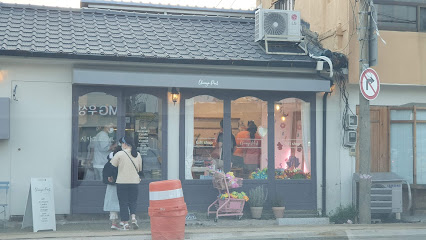
Essential bars & hidden hideouts
The Backyard
0.2 km
Discover the charm of Gyeongju at The Backyard, where local flavors and a cozy atmosphere come together for an unforgettable bar experience.
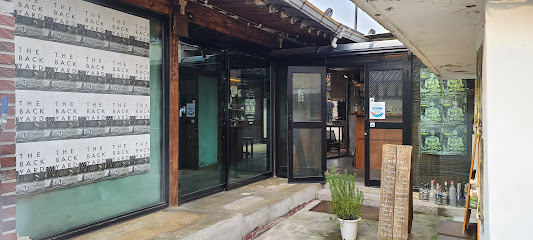
Little Rock
0.3 km
Experience the vibrant nightlife and rich culture of Little Rock, Arkansas, a hidden gem for travelers seeking adventure and charm.
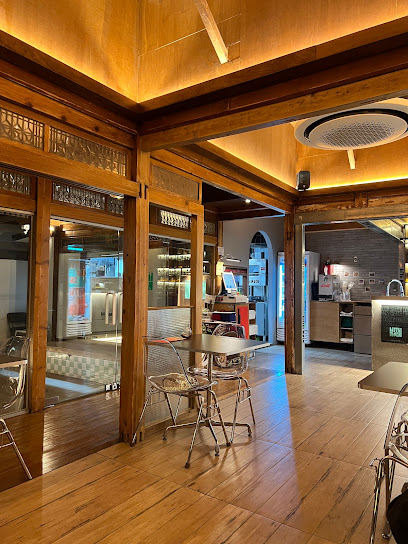
Yakkisim
0.3 km
Experience Gyeongju's nightlife at Yakkisim - a lively bar offering local drinks and a vibrant atmosphere for unforgettable evenings.
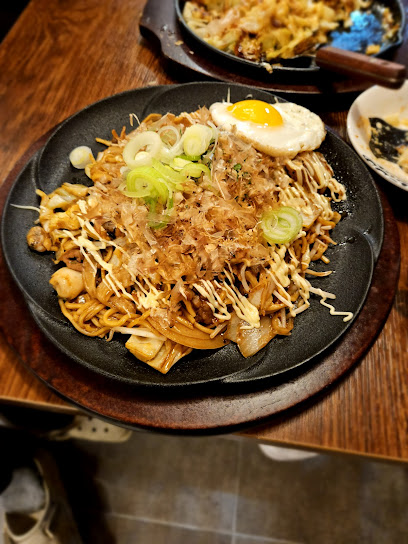
선데이경주
0.3 km
Discover the lively nightlife at 선데이경주, a vibrant bar in Gyeongju-si offering a perfect blend of local and international beverages.

Bar분 (Bar Boon)
0.3 km
Experience the vibrant nightlife and unique Korean-inspired cocktails at Bar분, a local favorite in Gyeongju-si.
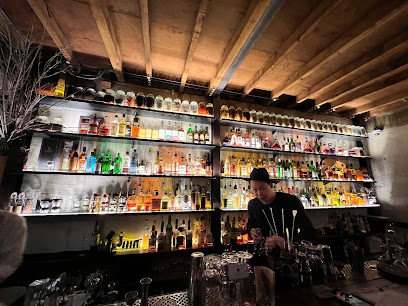
목로 (Mokro)
0.3 km
Discover Mokro: A lively bar in Gyeongju-si, where vibrant nightlife meets exquisite drinks and warm hospitality, perfect for unwinding after a day of exploration.
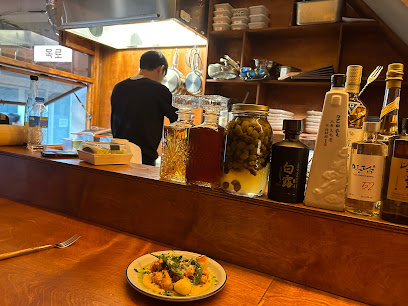
Oni
0.4 km
Discover the vibrant nightlife at Oni, a must-visit bar in Gyeongju, offering exquisite drinks and a lively atmosphere for all to enjoy.
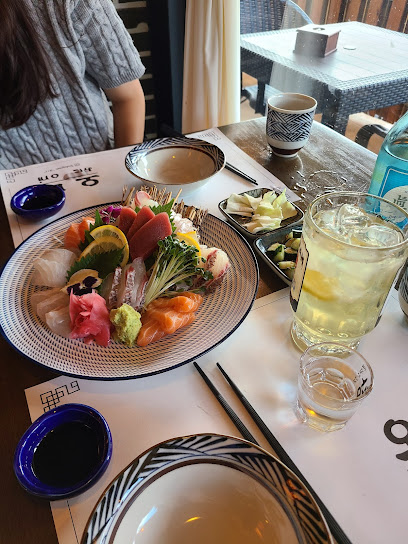
오아시스 경주
0.4 km
Experience the perfect blend of exquisite wines and cozy ambiance at Oasis Gyeongju, a must-visit wine bar in the heart of Korea's ancient city.
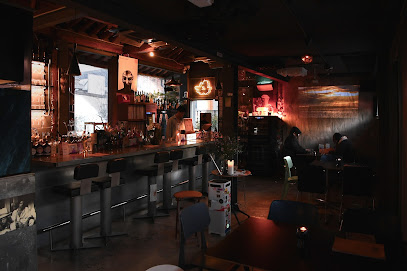
Seogs
0.5 km
Discover Seogs, a charming cocktail bar in Gyeongju, offering unique Korean-inspired cocktails in a cozy atmosphere, perfect for tourists.
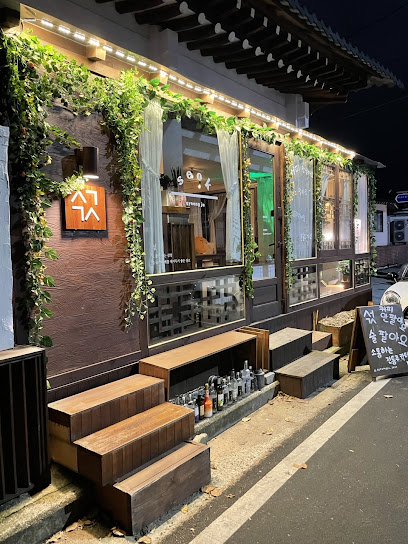
Le Jour J
0.6 km
Experience the elegance of French cuisine and fine wines at Le Jour J, Gyeongju's premier wine bar and restaurant.
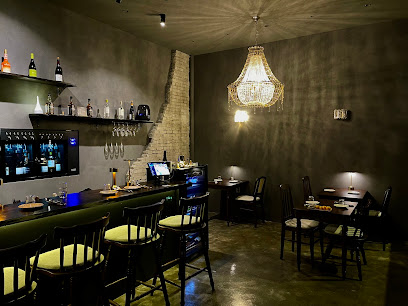
Lajibaeg
0.6 km
Discover the vibrant nightlife of Gyeongju at Lajibaeg, a lively bar offering a mix of local culture and modern drinks.
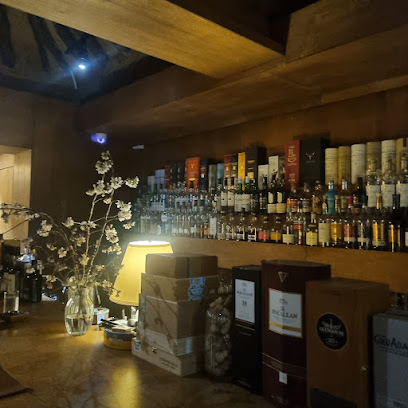
Bar Prep
0.6 km
Discover the best cocktails in Gyeongju at Bar Prep, where every drink is crafted to perfection against the backdrop of ancient tombs.
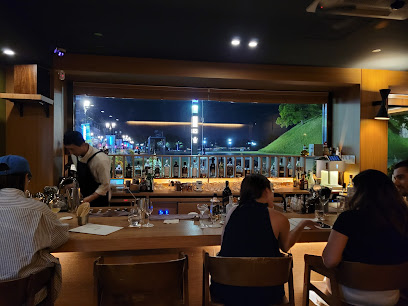
Yesterday, Below
0.7 km
Discover Gyeongju's nightlife at Yesterday, Below - a cozy pub offering local brews, lively entertainment, and a welcoming atmosphere.
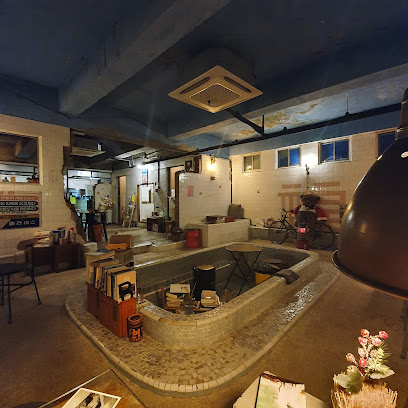
Stillroom
0.7 km
Discover the vibrant nightlife of Gyeongju at Stillroom, where great drinks and a welcoming atmosphere await.
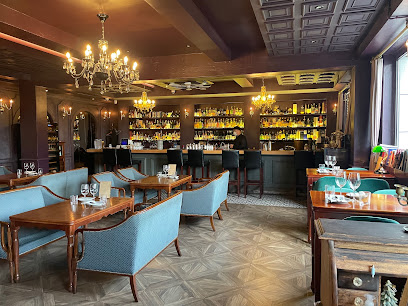
Sweet Moon
0.7 km
Experience the charm of Sweet Moon, Gyeongju's wine bar offering a curated selection of wines and a welcoming atmosphere.
